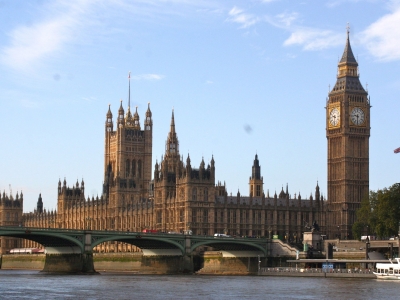
Fidusuisse
no reviews yet
Specialises in:
- Incorporation Services
- Shelf Companies
- Trusts
- Foundations
- Virtual Office
- Bank introductions
United Kingdom Company
€1600 EUR
Incorporation time: 1-13 days
Good Privacy Nominee Director Included Nominee Shareholder Included Secretary Included
FORMING A UNITED KINGDOM (UK) COMPANY
Incorporation time: 13 days
Shelf companies: Yes
Accounting: Yes
Secretary: Yes
Nominee Shareholder: Yes
Nominee director: Yes
History of the United Kingdom
The United Kingdom, situated off the North West coast of Europe, has one of the oldest constitutional monarchies in the world. Its capital, London, is the leading financial centre of Europe and one of the most influential cities in the world. Formerly a colonial empire, the country still has 14 overseas territories, and was the birthplace of the industrial revolution. Today, the United Kingdom is the world’s seventh largest economy.
The UK as an Onshore Financial Centre
The United Kingdom is an ideal choice for setting up onshore/offshore entities which benefit from a tax of approximately 5% through a holding company. Company formation in the UK is very simple thanks to its Common Law legal system and relatively low management fees.
The preferred type of onshore company is the Private Limited Company which, when combined with the UK Agency structure, makes it possible to significantly reduce tax leakage. The advantage of the United Kingdom is that for offshore entities, corporate income tax can be reduced to around 3% or 4% and VAT does not apply. Additionally, the country’s excellent international reputation is beneficial for brand image and public perception.
United Kingdom Summary
London is the world’s leading financial centre. It is part of Europe, and has many advantages, including a low tax rate, resulting from an Agency structure, and an excellent reputation. The United Kingdom offers the best possible market conditions for international business and therefore is an ideal jurisdiction for all kinds of trading, service and holding operations.
Types of UK Company
Creating a company in the United Kingdom involves six steps and takes around two weeks.
| Types of companies | Minimum Share Capital | Number of Shareholders, Members or Partners |
|---|---|---|
| Limited Company (LTD) | 1 GBP | One shareholder, limited liability. |
| Public Limited Company (PLC) | Minimum of 50,000 GBP, 25% of which must be paid up upon formation | One shareholder, limited liability. |
| Limited Partnership (LLP) | No minimum capital | Minimum of two partners, limited liability. |
| Partnership | No minimum capital | Minimum of two partners, unlimited liability for debts and obligations, liability is joint and several. |
Limited Company (LTD)
The LTD is the most common type of company in the United Kingdom. It provides a flexible structure and is quick to create; it also makes it possible to transfer shares or bring in other investors or shareholders. The company may be owned by legal or natural persons, and can therefore be controlled by an offshore company, which makes it possible to pass on 95% of revenue under an Agency arrangement.
Public Limited Company (PLC)
The PLC is a company with a single partner and shareholder, and cannot include any others.
The Limited Partnership (LLP)
An LLP is an incorporated partnership which takes the form of a company having two partners governed by a contract. These partners can be either natural persons, or offshore companies. This type of company has no units or shares, but is instead an equal partnership. The LLP structure usually consists of two offshore companies, located for example in Belize and the British Virgin Islands, or in Hong Kong and Gibraltar if the company is more concerned with reputation.
UK’s Economic Strengths
- Relatively fast company formation times.
- Low effective tax rates.
- London is the global leader in financial services.
- London has been voted the best European city for business.
UK’s Economic Weaknesses
- The necessity of forex when trading between GBP and EUR.
- Poor infrastructure.
- Strong competition in the industrial sector.
Once a foreign-owned company is registered in the United Kingdom it is treated the same as any other British company. Also, the United Kingdom strongly protects the rights of its businesses within the European Union.
UK AGENCY STRUCTURES – 3% UK COMPANIES
The UK Agency Company
The UK Agency Company or UK Agreement is a simple onshore/offshore relationship between several companies. For example, imagine that an offshore company wants to do business with several clients based in various countries. To facilitate transactions, the offshore company (called the principal) establishes an onshore company in the United Kingdom (the agent) to carry out trade with the principal’s customers.
An agency contract between the two entities is drafted which records that the British company acts on behalf of the offshore company but that all trade will be conducted in the agent’s name. Therefore it is the company based in the United Kingdom that will be in contact with clients, issue invoices and receive payments but the offshore is the controlling party.
Under this arrangement income is deemed to arise on the offshore company and therefore taxed according to the legislation of the country of destination, usually at 0%. It is important to clarify that the UK onshore company may not exercise an activity in the United Kingdom or conduct any trade in its own name otherwise it will become subject to British tax law.
The UK Agency Company therefore enjoys the positive reputation and ease of commerce offered by the United Kingdom while also taking advantage of the offshore company’s tax benefits, as the offshore company receives all revenue.